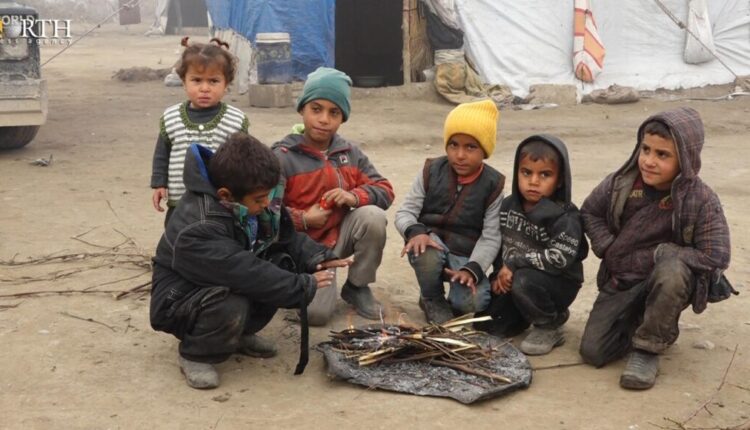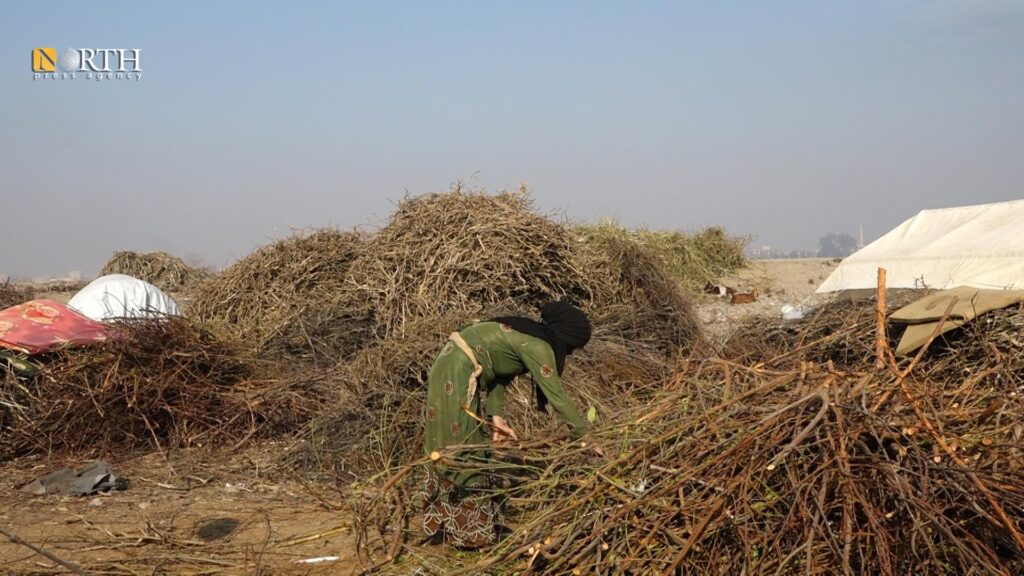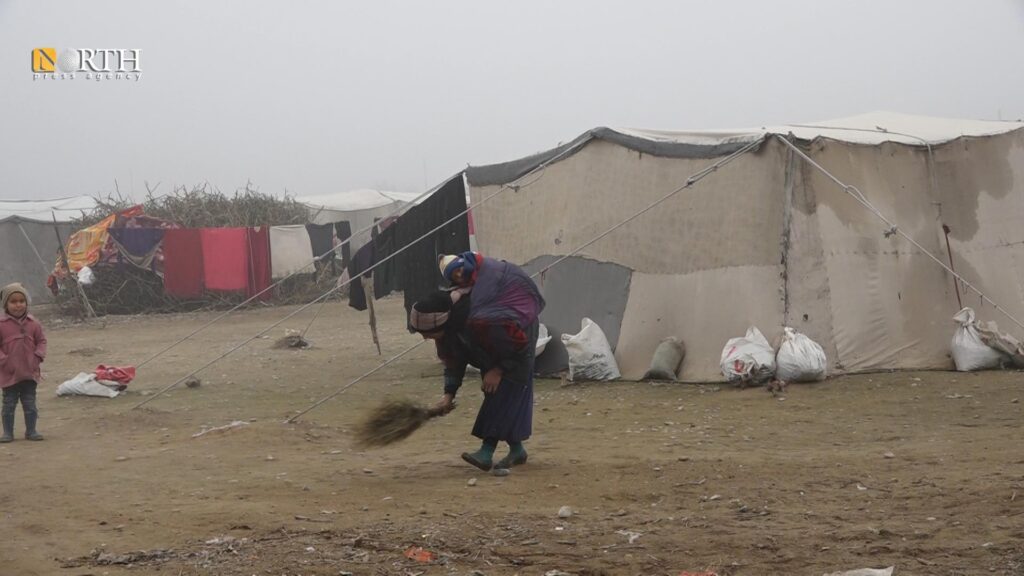
RAQQA, Syria (North Press) – As the early morning sun beats up and despite the freezing temperature, Maryam al-Khelaif, 60, heads to the lands near her camp, where she lives with her family, to collect firewood.
Al-Khelaif is hurrying back to the camp, holding on her head bundles of wood that will be used for heating and cooking today and tomorrow’s meals.
Al-Khelaif, a displaced woman in al-Younani camp, 1 km south of Raqqa, north Syria, is obliged to do so, as her family, like the rest of the camp’s residents, did not receive winter heating allocations.
She collects as much firewood as possible to cover her needs for months in anticipation of colder days than those that have passed.

She said that she has to light firewood and use it for heating to protect her children from the severe cold.
“The weather is too cold and our children are sick. They have not distributed any heating oil until now, when it rains, wood gets wet and we cannot set it on fire,” al-Khelaif added.
Al-Younani makeshift camp shelters nearly 270 displaced families all coming from areas under the control of the Syrian government forces in the southern countryside of Raqqa and the countryside of Homs and Hama governorates.
There are 58 makeshift camps in the countryside of Raqqa that shelter more than 90.000 IDPs, numbering 16.165 families, according to data from the Camps and IDPs Affairs Bureau of the Raqqa Civil Council of the Autonomous Administration of North and East Syria (AANES).
The AANES was first formed in 2014 in the Kurdish-majority regions of Afrin, Kobani, and Jazira in northern Syria following the withdrawal of the government forces. Later, it was expanded to Manbij, Tabqa, Raqqa, Hasakah, and Deir ez-Zor after the SDF defeated ISIS militarily there.
If there is not enough firewood, al-Khelaif has to collect nylon, plastic bags, and shoes to use for heating instead of firewood. As a result, her husband and children are now suffering from respiratory diseases because of the smoke emitted from burning nylon.
“It is winter but no fuel was distributed. We are shivering of cold,” she said.
The IDPs of the makeshift camps in Raqqa face harsh humanitarian situations due to the harsh winter, lack of supplies, and the possibility of the spread of infections including cholera, flu, and others.
Like the rest of the camp’s residents, Ibrahim al-Abdullah, 50, sends his wife to bring firewood from the lands on her head.

“The relevant authorities have promised us to distribute heating oil since July. They keep telling us that they give us our allocation the next month. The winter is about to finish and we have not received anything yet,” al-Abdullah noted.
“Winter is about to finish. I have 11 children. They are all sick and have a cold,” he said.
Despite the successive refusals and failure to respond to the demands of the residents of the camp, Faraj al-Hussein, 65, is still hoping to receive his allocation, despite the fact that about half of the winter has passed.
The AANES allocates 300 liters of heating oil to each family in winter at a price of 150 SYP per 1 liter, while the price of heating fuel on the black market is 2.200 SYP.
Al-Hussein calls on the relevant authorities to pay more attention to the camp and its residents and provide them with aid in light of the deteriorating living conditions, which are getting worse with the devaluation of the Syrian pound, and the lack of job opportunities.
